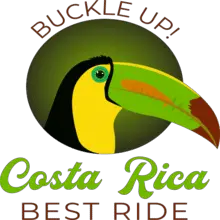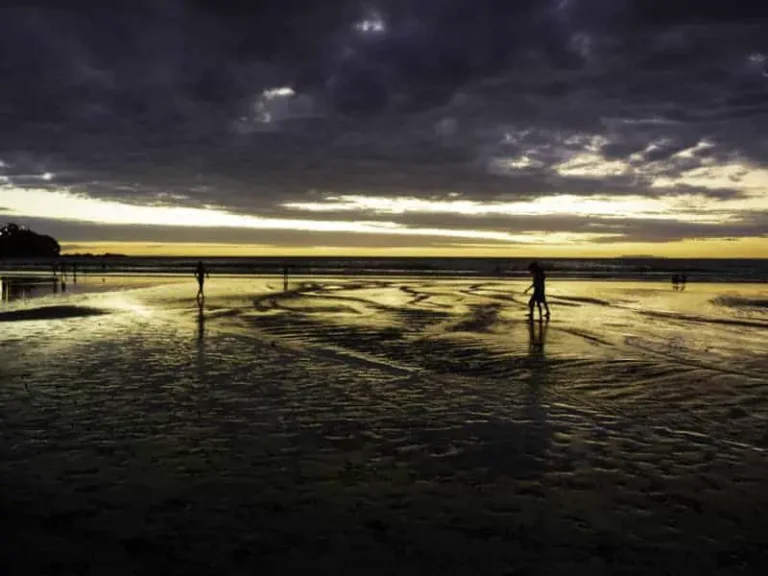Covid-19 Costa Rica Border Open

The pandemic has canceled many plans, especially for those who are planning to travel to Costa Rica. If you’re one of those people who couldn’t get into the country, then my condolences. But, closing its borders was necessary for Costa Rica, as the pandemic has affected many people in the country.
It was started on March 18, 2020, when the President, Carlos Alvarado declared a State of Emergency in response to the coronavirus pandemic. Following that, the country shuts down its borders to foreigners and non-residents, thus preventing them from entering via land, air, or sea.
The citizens of Costa Rica who just arrived in the country had to follow a mandatory 14-day quarantine for safety purposes. And many public places including public and private schools were shut down too right after the announcement.
Overall, it was chaos and many people were confused about the situation. Citizens are wondering when they can go outside like usual, and foreigners are wondering when they can visit the country again.
Travelers with a layover in Costa Rica were still allowed to transit through the airports and there was no restriction for people who want to leave the country. So, travelers who were already in Costa Rica were allowed to leave as usual. No restrictions at all.
Nevertheless, the travel restrictions were planned to last until Sunday, April 12, 2020. And left a major blow to the country.
Covid-19 Impact on Tourism in Costa Rica
The travel restrictions caused heavy damage to Costa Rica’s tourism. This isn’t a surprise, considering that the tourism sector makes up about 8.2% of Costa Rica’s gross domestic product. And with 3.1 million visitors from abroad every year and about 220,000 people employed in the tourism sector, you can imagine the damage the pandemic has caused.
So, what about the present situation in Costa Rica? Can you visit the country now? And are there other limitations imposed on the citizens and non-residents? Let’s talk about these topics.
Covid-19 The latest information in Costa Rica
As of November 19, 2020, the government of Costa Rica has informed the public that there are more than 100 thousand confirmed cases of Covid-19 since March 2, 2020, 16 days before the country was shut down.
More than 400 people are being treated and more than 200 among them are now in intensive care. The death count is at around 1,500 and the good news is more than 78 thousand people have been declared healthy and free of the virus.
Many essential services are now open as well. Including public transportation and hospitals, which are operating as usual without limitations. Everyone is required to wear a face mask when traveling outside, including in all public spaces and indoor settings. They are allowed to take off their masks while eating, inside a private home or property, and when they’re alone.
Face masks can be homemade as long as they cover the nose and mouth area. Venting devices shouldn’t be included with the mask as it makes the mask less effective, as per The Ministry of Health’s instruction. Please remember these if you’re planning to visit Costa Rica anytime soon.
Covid-19 Entering and exiting Costa Rica
There are plenty of new requirements for people who are planning to enter or exit the country. It’d be wise to learn the requirements thoroughly before departing.
First of all, US citizens are allowed to enter the country. Everyone from all 50 states can enter the country via air. But you’ll need to provide proof of a medical insurance policy that says you will and can cover any Covid-19-related treatment or quarantine while you’re in Costa Rica.
If you have international insurance, you must request your insurer to issue a certification in English and/or Spanish. The certification must note the validity of the policy during the dates of your visit, the claim that the insurer will cover any medical expenses for Covis-19-related treatment or quarantine, and minimum coverage of $2,000 for extended accommodation expenses in case of Covid-19-related illnesses.
Every visitor must also complete an online Health Pass or Pase de Salud, 48 hours before departing for Costa Rica. You can access the webpage at https://salud.go.cr/. Don’t forget that you must bring a valid password and proof of intent to leave the country within 90 days.
Costa Rica US citizens with permanent or temporary residency
If you’re a US citizen with either permanent or temporary Costa Rican residency, you can enter the country via air or through authorized land border crossings. You also must be able to provide a passport, Valid DIMEX, proof of up to date Caja payments for each person entering with you, and again a completed Health Pass or Pase de Salud.
If you don’t have up to date Caja payments, you’ll still be allowed to enter the country but will be required to update all payments within 22 days. So, make sure that you do that. People who belong in this category must also purchase health insurance to cover any Covid-19-related treatment or accommodation for the 22-day grace period.
There is an additional requirement for US citizens with permanent or temporary residency who enter Costa Rica through a designated land border crossing. Everyone will receive an order to be home-quarantined for 14 days.
One more important information you should know is that the Costa Rican Immigration officials have the sole authority to determine how long tourists can stay in Costa Rica. Currently, the Immigration officials are limiting the duration of how long tourists can stay to correspond to the Covid-19 medical insurance.
This is why you can’t prolong your stay in Costa Rica. If you want to do that you are required to exit the country and purchase additional Covid-19 medical insurance before entering again. This may sound complicated but it’s actually simpler than that. The downside is, of course, the whole process consumes a lot of time and energy.
You don’t need a negative Covid-19 test to enter Costa Rica

Every tourist from the US who wants to enter Costa Rica isn’t required to present the results of a negative PCR test for Covid-19. But everyone is still required to complete Health Pass and provide proof of health insurance to cover any Covid-19-related treatment and accommodation in case of quarantining.
Furthermore, you’re also required to follow the health screening procedures at airports and other ports of entry. The procedures consist of filling out digital epidemiological forms, which are available in multiple languages, and health tests for people who are showing symptoms related to Covid-19. For the last part, the Ministry of Health will impose quarantine for the individuals after the tests were done.
Covid-19 Costa Rica Movement Restrictions
Now, let’s talk more about the situation inside the country. First of all, there’s no curfew in place at the moment. But the government has implemented nationwide driving restrictions based on license plate number.
The restrictions are being updated regularly, especially for areas under Orange and/or Yellow Alert. It’s advised to avoid driving at all while you’re in Costa Rica to avoid problems with the law.
On the bright side, there’s no restriction on interstate or intercity travel. You’re free to travel as long as you’re not driving. So, the best way is by using public transportation. Don’t forget to wear your mask.
Covid-19 Testing and Quarantine

US citizens aren’t required to quarantine. Any information that says otherwise is false. If you’re diagnosed with Covid-19 in Costa Rica, you will receive a quarantine order upon arrival.
For Covid-19 testing, all tests are available at Hospital Cima, Hospital Metropolitano, Hospital La Católica, and Hospital Clinica Biblica. These laboratories are also available to conduct tests: LABIN, Echandi, Laboratorio Páez, Laboratorios San José.
The cost of one test is around $100 and you’ll get the result within 48 hours. Any cost is fully paid by each individual. For more information please visit https://www.visitcostarica.com/en/costa-rica/planning-your-trip/entry-requirements. And for new information regarding entry requirements, please visit think link https://cr.usembassy.gov/category/messages-for-us-citizens/.







